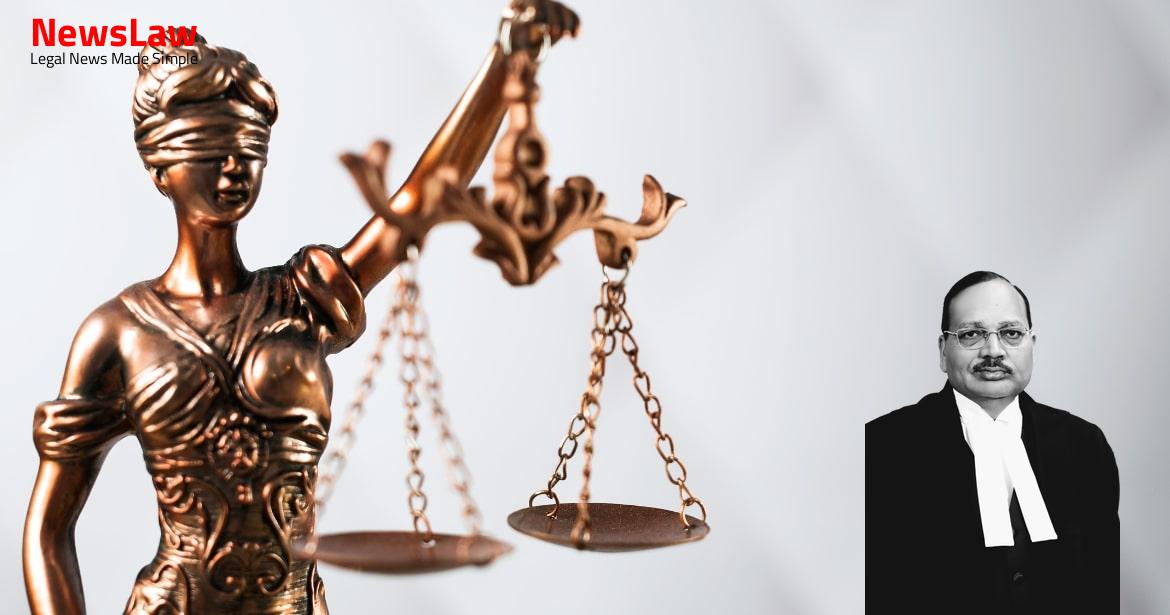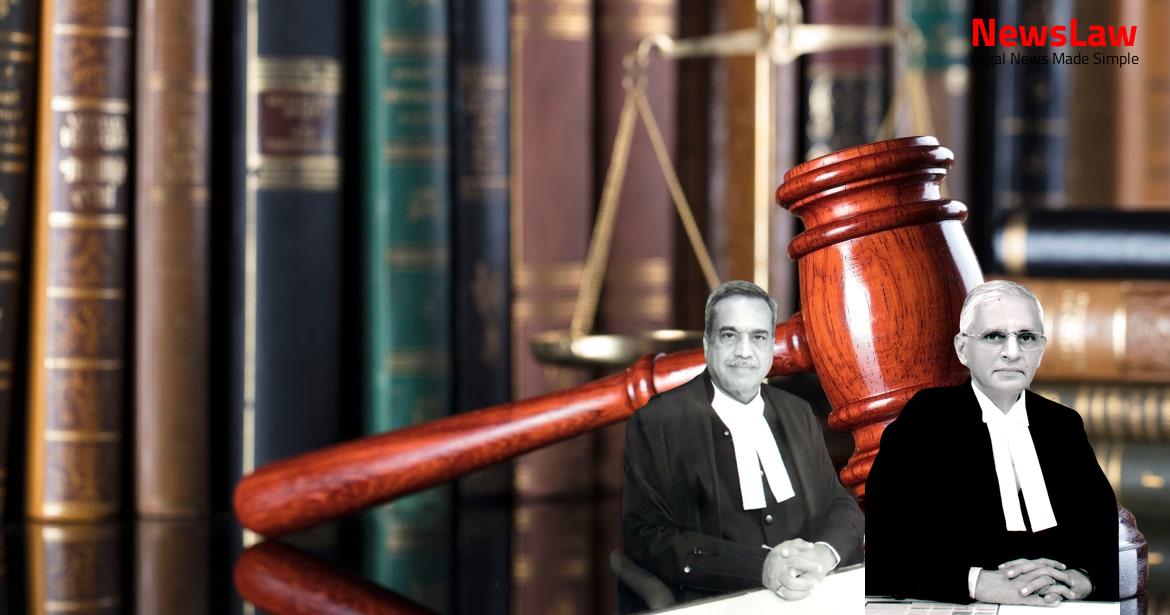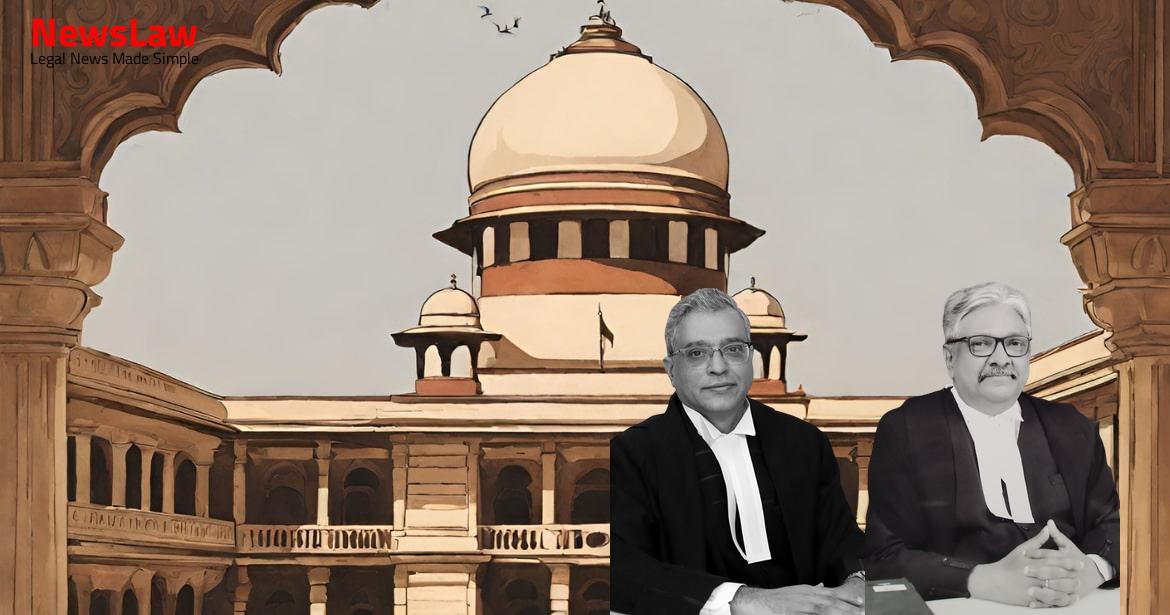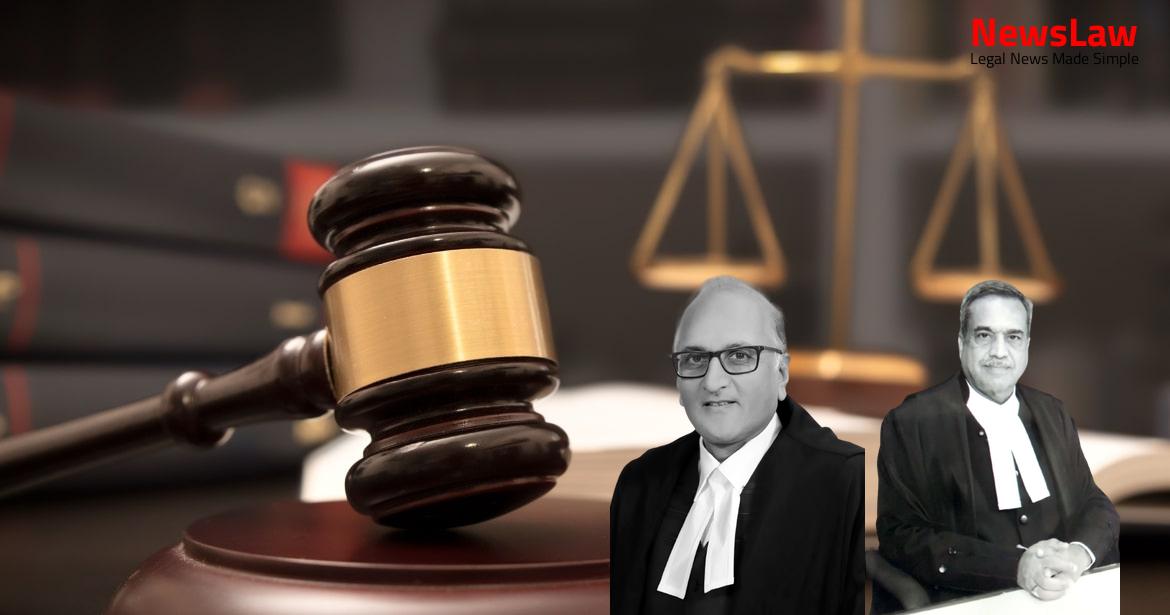In a significant legal development, the Supreme Court has delivered a groundbreaking judgement in favor of ensuring justice for SDI/ABSA and DBSA. This decision comes after a prolonged legal battle spanning over two decades, finally addressing the pay scale revisions and setting a precedent for similar cases. Stay informed on the latest updates regarding this crucial ruling! #SupremeCourt #JusticeForAll #LegalRights #JudicialSystem
Facts
- An application was filed seeking clarification of a previous order before the Court, which was dismissed as withdrawn on 08.07.2011.
- The ABSA position had the same pay scale as SDI, both at 4500-7000 from 01.01.1996.
- The Rizvi Committee proposed a policy on 12.01.2010 to merge SDI/ABSA and DBSA posts into a new post with a pay scale of 7500-12000.
- This proposal was subject to mutual consent of the parties and modification of a previous court order.
- The Court referred to the proposed Policy and found no reason to interfere with the previous judgement, dismissing the appeals on 08.12.2010.
- A comparison of pay scales for SDI/ABSA, DBSA, and Headmasters from 1945 to 1996 was presented.
- A decision was taken by the State to rectify pay discrepancies for Deputy Inspector of Schools/Deputy Basic Education Officer in 2010.
- A civil appeal challenging the High Court’s order was filed by the State before this Court.
- The proceedings dated 12th May, 2010 show the decision to rectify pay discrepancies for the post of Block Education Officer.
- The SDI/ABSA and DBSA used to have supervisory control over Headmasters and Teachers of Junior High Schools.
- The State authorities initiated contempt proceedings against the Principal Secretary, Department of Basic Education for non-compliance of a High Court order.
- The High Court viewed that the pay scales of SDI/ABSA and DBSA should have been revised along with Headmasters on 20.07.2001.
- The State failed to file a joint application based on mutual consent of the parties, leading to the delay in the intra-court appeal being heard on merits.
- The High Court initiated criminal contempt proceedings against the Principal Secretary, Department of Basic Education.
- The High Court dismissed the application for condonation of delay of 428 days filed by the State, citing the State’s previous approval of a settlement in 2011.
- The State issued a 2011 Order granting substantial relief with arrears to the Respondents and similar employees.
- The State authorities filed a delayed Special Appeal before the Division Bench challenging a Single Judge Judgement.
- The Supreme Court stayed the effect of certain orders and directed the Government to implement its decision.
- The State Government approached the Supreme Court against High Court orders.
- The High Court directed the State to grant revised pay scales to SDI/ABSA and DBSA with effect from 01.07.2001.
- The High Court directed compliance with the Single Judge’s Judgement within 15 days.
- Recovery orders were issued against the Principal Secretary and adjustments were to be made from his retiral dues.
- An interim order directed the State to pay retiral dues to the Principal Secretary, except the excess amount paid to him.
- The High Court kept a 2007 writ petition pending to await the outcome of the ongoing litigation.
- A Division Bench of the High Court allowed a writ petition regarding pay scale revision for SDI/ABSA and DBSA.
- The Supreme Court dismissed the State’s appeal in 2010, leading to the current proceedings.
- A Single Judge of the High Court quashed the 2011 Order and directed the State to pass appropriate orders within three months.
- The State failed to challenge the Single Judge’s Judgement within a reasonable time or implement its directives.
Also Read: Ensuring Justice: Amanatullah Khan vs. Commissioner of Police, Delhi – A Landmark Case
Issue
- Issue at hand is whether SDI/ABSA and DBSA are entitled to higher pay scale from 01.07.2001 or 01.12.2008 onwards.
- The question is about the timing of the implementation of the higher pay scale.
- The core concern is the effective date for the increase in pay scale for the mentioned parties.
- This issue hinges on the interpretation and application of the relevant regulations or agreements.
- The decision rests on determining the appropriate starting point for the enhanced pay scale.
Also Read: State of Kerala vs. Union of India: Fiscal Responsibility Case
Arguments
- The Appellant State was obligated to give effect to the order passed by the Court.
- The Learned ASG relied on the Kunhayammed v. State of Kerala decision to emphasize the doctrine of merger, where the High Court judgment was merged with the reasoned order passed by the Court.
- The 2011 Order was issued in good faith to implement the directions approved by the Court, and the financial implications are significant at approximately Rupees 1500 Crores.
- It was argued that the matter was rendered infructuous by the Court’s order, leaving nothing to be adjudicated despite no formal application based on mutual consent.
- The negligence of some officers in the State was highlighted for delay in filing the intra-court appeal and lack of satisfactory explanations for the delay.
- The Respondents, who are retired senior citizens, have been involved in litigation for the last twenty-two years due to a simple case of acknowledgment and removal of pay anomaly.
- The Appellants have continuously disobeyed court orders and are in contempt of court.
- The State’s claim of a financial burden of approximately Rupees 1500 Crores is unsubstantiated and lacks factual basis.
- Mr. Dushyant Dave and Ms. Shubhangi Tuli, representing the Respondents, strongly opposed the State’s claims.
Also Read: R.C. Sabharwal vs. Income Tax Department
Analysis
- The doctrine of merger can be applied only to certain circumstances and not all.
- Indian jurisprudence has integrated the doctrine of merger through various decisions.
- The High Court erred in assuming its previous decision was intact despite the order of the Supreme Court.
- The Court invoked Article 142 of the Constitution to address the issue.
- Once leave to appeal is granted, the doctrine of merger comes into play.
- Legislature cannot overrule a judicial dictum but can change the basis on which the judgment was founded.
- The State attempted to annul a court decision through administrative means, which is impermissible.
- Delay in resolving matters often renders them infructuous.
- The Court emphasizes ending litigation without delay to prevent a flood of similar cases.
- The High Court’s previous decision operating as res judicata was deemed legally incorrect.
- Litigation between parties dates back to 2002, requiring scrutiny of judgments issued.
- Article 142 empowers the Court to ensure justice and prevent manifest injustice.
- Various factors influence the actions or inactions of State functionaries.
- Anomalies in pay scales can be rectified through amendments to rules.
- Recommendations by expert bodies like Pay Commission play a key role in determining pay scales.
- Dismissal of a special leave petition does not automatically merge the orders under challenge.
- In public interest cases, courts may tilt towards the public interest over individual interests.
- The State’s measures were in compliance with the Court orders to rectify pay discrepancies.
- Court acknowledges the State’s efforts to rectify the anomaly in pay scales.
- The Court approved the Proposed Policy as fair and just to close the pending litigation.
- Merger in law is defined as the absorption of a thing of lesser importance by a greater, whereby the lesser ceases to exist, but the greater is not increased.
- Merger involves a loss of identity and individuality where the absorbed entity ceases to exist.
- The doctrine of merger was elucidated in Kunhayammed and further affirmed in the case of Khoday Distilleries Ltd. v. Sri Mahadeshwara Sahakara Sakkare Karkhane Ltd.
Decision
- Allowance of the appeal in part and issuance of directions under Article 142 of the Constitution.
- Setting aside of the Impugned Judgement of the Division Bench and the Single Judge of the High Court.
- Approval of the 2011 Order in its entirety.
- Entitlement of SDI/ ABSA and DBSA to pay scales as per the 2011 Order from specific dates.
- Protection of excess payments made to the employees from recovery.
- Clarification that this order does not set a precedent for other employees in different departments to claim revised pay scales.
- Affirmation of the judgement setting aside the recovery for excess payments.
- Restriction of benefits to employees of the State Education Department falling under specific categories considered by the Rizvi Committee.
- Exclusion of employees from other Government Departments from entitlement to benefits as a matter of right.
- Direction for re-fixing pension and other retirement benefits of retired employees with arrears to be paid within four months with interest.
- Disposition of the present appeal with the direction for payment of arrears to the entitled employees within four months with interest.
Case Title: THE STATE OF UTTAR PRADESH Vs. VIRENDRA BAHADUR KATHERIA (2024 INSC 524)
Case Number: SLP(C) No.-007130 – 2024



